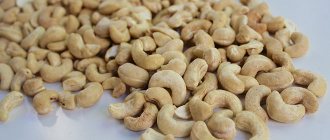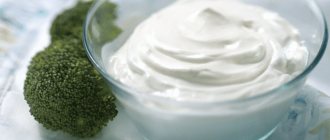During breastfeeding, it is important to ensure that the mother has access to balanced and healthy food. There is an opinion that tea with condensed milk will help enhance lactation and increase the fat content of milk. Is this so, is it possible to introduce condensed milk into the diet while breastfeeding?
It is often recommended to drink tea with condensed milk when breastfeeding. Condensed milk is useless for increasing lactation, but it will lift the mood of a nursing mother.
Composition and benefits of condensed milk for breastfeeding
Whole condensed milk contains cow's milk and sugar. The natural product includes a set of vitamins (A, B, C, E, P) and microelements (calcium, potassium, phosphorus, magnesium, iron), with a mass fraction of protein in the dry components of milk up to 40%. The term “condensed milk” refers to concentrated milk with added sugar, but it can also be flavored with chicory, with hints of cocoa or coffee, or with caramel or marmalade flavors. And when the sweet dessert is boiled with butter, you get candies - milk irises.
Before purchasing a product, it is important to read the composition on the package and choose a product for lactation without additional ingredients. It is forbidden to introduce condensed milk into the diet if it contains:
- industrial palm oil as a substitute for natural milk;
- starch to increase the viscosity of the consistency;
- titanium dioxide to give a snow-white color;
- artificial sweeteners, preservatives.
The content of such ingredients in condensed milk can have a detrimental effect on the health of the mother and child. High-quality condensed milk has a white or cream color, with a milky smell and sweet taste, without additional additives.
The product without sweeteners and stabilizers is marked GOST R 53436-2009. Such condensed milk will be beneficial for the health of the mother, with minimal risk of undesirable consequences for the baby.
With moderate consumption of natural dairy products, energy reserves are restored and the psycho-emotional state of the mother improves. The microelements contained potassium and magnesium ensure the functioning of the cardiovascular system, phosphorus normalizes brain activity, and calcium strengthens the bone apparatus.
Doctor Komarovsky's opinion
Dr. Komarovsky says that a nursing mother should not limit herself in everything. After giving birth, you can eat everything you ate during pregnancy. But you shouldn’t experiment and include foods in your diet that you didn’t eat before giving birth. Any natural food, including condensed milk, is allowed. It is important to gradually introduce foods into the diet, observing how the child’s body reacts to them. Dr. Komarovsky also believes that the baby may develop an allergy to any specific product. It's important to keep an eye on this. Good nutrition is the basis for the health of mother and baby.
According to Dr. Komarovsky, if you ate condensed milk during pregnancy, you can drink tea with condensed milk during the first month while breastfeeding. However, I recommend doing this in a small amount for the first time in the morning and watching the baby’s reaction throughout the day. After all, Komarovsky may be wrong.
Dr. Komarovsky responds to a letter from a nursing mother:
I must admit that numerous prohibitions and restrictions on the nutrition of breastfeeding women are widespread in our country. Moreover, the initiative to introduce these restrictions comes not so much from doctors as from public opinion. And our society is deeply convinced that a nursing mother is not allowed to do much. This ban fits perfectly into the tendency of post-Soviet society to turn motherhood into a feat. To be a nursing mother and at the same time get enough sleep, look good, eat normally and love your husband is absolutely unacceptable for our country. The mother should be a heroine, period. Even if she has one child, there will still be room for a feat: she will not eat, not sleep and suffer.
Such an attitude towards motherhood in general and towards the nutrition of a nursing woman in particular is simply absent in most civilized countries. If a nursing mother wants any food, she can definitely get it and consume it in reasonable quantities, because for successful - safe and happy - breastfeeding, it is the woman’s mood that is most important. If she smiles and feels good, if she is not haunted by a constant feeling of hunger, then it is clear that the quality of her milk is an order of magnitude higher.
Medical science does not know any specific prohibitions regarding the nutrition of a nursing woman. It is clear that we put such things as alcohol, drugs, cigarettes out of brackets and do not consider them at all. If you really want something, why not try it? After all, when a woman clearly sees a connection between the consumption of any products and the well-being of the child, then she herself will refuse such products. But if you and your child are feeling normal, there are no problems, so why limit yourself? Eat for your health!
In general, in this aspect you need to be guided not by some speculation and advice from “experienced” people around you, but by basic common sense. I myself have been conducting surveys of breastfeeding women on this topic for many years. For example, I ask such a “heroine” mom: “On what basis did you come to the conclusion that you are absolutely not allowed fried potatoes?” I have not received a clear answer to date.
https://komarovskiy.net/letters/pismo-o-pitanii-kormyashhej-mamy-s-otvetom-doktora-komarovskogotora.html
Contraindications and harm of condensed milk during breastfeeding
So why do many experts do not recommend using condensed milk for lactation in the first trimester after the baby is born? What is the harm of this sweet product? It is important to limit the mother’s consumption of condensed milk due to the following factors:
- the possible occurrence of an allergic reaction in a newborn due to the main protein of cow's milk - rash, redness and peeling of the skin, nausea, vomiting, intestinal upset, runny nose, fever;
- the risk of lactose intolerance, when the child’s body is not able to effectively absorb lactose due to a lack of enzymes in the intestines to break down milk sugar;
- disturbances of metabolic processes in the body of the mother and child due to an increased concentration of sugar - carbohydrates provoke fermentation processes;
- high calorie content of the product - 320 Kcal per 100 g of product (uncontrolled consumption of condensed milk leads to excess body weight gain).
It is important to consider that the child’s enzymatic system in the first trimester after birth is imperfect, and therefore it is important to avoid introducing highly allergenic foods (honey, chocolate, citrus fruits, red vegetables and fruits), including any condensed milk - regular or boiled.

Three months after giving birth, you can introduce condensed milk into the diet of a nursing mother, without overeating her and monitoring the baby’s reaction to its use.
Is it possible to have condensed milk during the guard - pros and cons
Back in Soviet times, there was a popular belief that condensed milk increases lactation. Even experts advised consuming a small amount of this product every day to improve the quality of milk. Now opinions differ, and mothers are confused whether condensed milk is ok during lactation.
Positive qualities of condensed milk:
- Nutritional value;
- Many useful components;
- Regulating the structure of milk;
- Improving the taste of milk.
Negative qualities:
- High calorie content;
- Lots of glucose;
- Cow protein that causes allergies.
If we compare all the pros and cons, we can conclude that condensed milk consumed during natural feeding can only be harmful if it is consumed in excess. If you follow the precautions, there will be no side effects.
Is it possible to eat condensed milk during breastfeeding in the first month? Experts recommend refraining from consuming it immediately after childbirth. The baby's tummy needs to get used to mother's milk, and at this time there should be a strict diet.

In the first month after childbirth, a woman must adhere to a strict diet
Tea with condensed milk - is it possible or not?
There is an opinion that tea with the addition of condensed milk increases lactation. In fact, frequent feeding of the baby on demand increases lactation.
However, it affects milk, changing its structure and improving its taste. In addition, the beneficial elements contained in its composition are needed by both mother and child. But you should not use condensed milk in its pure form; it is advisable to combine it with other products, for example, drink tea with it.
It is worth remembering that unlimited consumption can cause allergies and digestive problems. When breastfeeding, drinking tea with condensed milk is allowed in small quantities. If you eat right, there will be no harm from this product.
Boiled condensed milk with gw
Based on the above, it is necessary to consume raw condensed milk with extreme caution. But what about boiled condensed milk? Is it ok to use while breastfeeding?
In fact, boiled condensed milk differs from plain milk only in taste. In terms of nutritional value and danger, it is no different from raw food. Therefore, if the baby has allergies, then you should refuse condensed milk.
In fact, this product is not necessary on the menu of a nursing mother, so condensed milk should be used with caution and in small doses.

When can it be included in the diet?
It is not advisable for a nursing mother to eat a lot of sweets, as this does not have a very good effect on the baby. If the child is not allergic to cow protein, then after two to three months after birth, you can begin to introduce condensed milk into the diet.
To minimize risks, you can drink tea with condensed milk. It must be introduced gradually and with caution. If a negative reaction occurs on the part of the baby, you should stop consuming condensed milk.
Attention! If your mother is overweight, you should not overuse this product.
Rules for introducing condensed milk into the diet
Condensed milk lovers should not be upset: already after the first trimester after the baby is born, you can try the product in small portions for breakfast. The maximum dosage is no more than 2 tbsp. per day, this is about 40 g. To reduce the negative impact of condensed milk, it is recommended to use it with bread and as part of other dishes. It is allowed to add condensed milk to teas during breastfeeding - weak black, green - or add the product to compotes, fruit drinks, juices, decoctions, at the request of the mother.
Condensed milk should be consumed before lunch, since the product is high in calories and can cause excessive excitability of the child, disrupting sleep and worsening the emotional state of the baby. If a baby has colic, is worried about bloating, flatulence, stool changes, foam or mucus appears in the stool - this is a typical reaction to cow protein. In this case, you should avoid consuming dessert for several months.
After the child’s body gets a little stronger, re-introduce the product.
In Soviet times, there was an opinion that tea with condensed milk increases lactation. However, this myth has been debunked, since any hot drink (and even a glass of warm water) can increase milk production, and condensed milk has nothing to do with it. The fact is that tea with condensed milk causes intestinal upset, during this process the tone of the mammary glands is eliminated, and therefore more milk comes in (milk is released involuntarily), but is not produced!
It is strictly forbidden to introduce condensed milk in any form in the first month of the baby’s birth in order to avoid an allergic reaction and the occurrence of low-grade lactose deficiency.
It is worth introducing condensed milk into the mother’s diet:
- after consultation with a breastfeeding specialist;
- after a medical examination of the child;
- at the stage of introducing complementary foods;
- when the mother's lactation process ends.
The abundance of sugar in condensed milk poses a danger to the child’s fragile body in the first three months after birth, and therefore whether to introduce the product into the menu or not is a mother’s informed decision.
When and why should a nursing mother not eat condensed milk? Possible harm
Today, the harmful properties of condensed milk from the store are primarily due to various chemical additives. Such compounds are prohibited not only during breastfeeding, but also for an ordinary healthy person. In addition, condensed milk contains a lot of sugar, which is why people with diabetes or obesity should not eat the delicacy. The calorie content of the product is 330 kcal per 100 grams. Due to the high sugar content, there is a high risk of developing a rash in infants. Condensed milk is considered a highly allergenic product along with citrus fruits and nuts. Condensed milk is especially dangerous for children 0-3 months old, since the body has not yet learned to produce enzymes for processing cow's milk.
Condensed milk negatively affects the functioning of the pancreas and gastrointestinal tract.
You should not use the product if the mother or child has lactase deficiency or individual intolerance. Condensed milk can even cause lactase deficiency in infants due to the cow's protein content. It manifests itself as bloating, constipation, severe and prolonged colic, mucus and foam in the baby’s stool.
Can condensed milk cause colic in a baby?
Condensed milk is a healthy and tasty product. It is allowed to be eaten during breastfeeding, but the risk of adverse reactions should be taken into account. Due to the high sugar content and high fat content, the product can cause colic in the baby. Adverse reactions also include constipation and flatulence.
Allergies due to condensed milk also happen. All because of the same sugar. In addition, it contains milk protein. It is not uncommon for many people, especially children, to have an allergic reaction to this substance.
Is it possible to have boiled condensed milk while breastfeeding?
Boiled condensed milk undergoes thermal treatment, as a result it loses useful elements and the sweet component of the product increases. It can serve as a delicious dessert for the mother, but it will not benefit the child. Breastfeeding consultants do not recommend consuming boiled condensed milk while breastfeeding for up to six months. You can replace it with soy condensed milk, but only if the baby does not have an allergic reaction to soy.

Boiled condensed milk is more sugary and is not recommended for consumption by a nursing mother until the sixth month after birth.
The period of breastfeeding is not the time for experiments, but you can pamper yourself with treats if you follow the dosage and recommendations of specialists during lactation. Whole condensed milk can be safely introduced into a mother’s diet 3 months after the birth of the baby, but only in the absence of lactose intolerance and an allergic reaction to the product.
Rules for use during lactation
There is a myth that condensed milk for lactation is good as an additive to tea, as it increases milk production. This is partly true, but milk production is stimulated not by condensed milk, but by hot tea. You can just as easily drink any warm drink, even ordinary warm water, this will stimulate lactation. In addition, lactation is well stimulated by frequent latching of the baby to the breast, sleeping together, wearing in a sling, frequent hugs and kisses, and a lot of contact between baby and mother. Tea with condensed milk is allowed during breastfeeding, but it does not affect the amount of milk produced.
By adhering to proper nutrition, any nursing mother will be able to quickly and easily establish lactation in the first months after childbirth. In nutrition, it is necessary to adhere to simple rules so as not to overload the bodies of the mother and baby with excess calories and carbohydrates. Preference should be given to natural foods, excluding the introduction of products with artificial additives, flavors and preservatives.
If you want to enjoy condensed milk during lactation, it is better for a nursing mother to choose condensed milk in accordance with GOST, in this case it will be as natural as possible and will not contain artificial colors and preservatives.
Composition of condensed milk
The main component of condensed milk is milk containing cow protein. It also contains sugar and water. The composition of condensed milk is enriched with vitamins necessary for women during breastfeeding. The natural product has a whitish color (sometimes creamy) and a uniform consistency. High-quality condensed milk does not contain preservatives or dyes.
However, nutritionists advise women who are overweight to avoid eating sweets. The permissible daily intake for a healthy person is 2 tbsp. l.
How much can you eat condensed milk?
During breastfeeding, drinking sweetened concentrated milk is not prohibited. But you need to remember the permissible dosages. Doctors recommend eating no more than 4-5 large spoons of condensed milk per day. At the same time, this amount must be reached gradually. Due to hormonal changes, the mother’s body may negatively accept sudden intake of sweets in large quantities.
It is recommended to start consuming condensed milk during breastfeeding with 1 spoon per day, diluted in tea or coffee. After 3-4 days, the dosage can be increased. Before appointments, you should take breaks that will allow the body to relax and tone up. If adverse reactions or allergies occur, use should be discontinued.
In what form can you eat condensed milk?
Experts believe that with breastfeeding, women can eat condensed milk in any form. Both pure and as an addition to other dishes. One of the popular methods is herbal tea with condensed milk during breastfeeding. This will help make it tastier and richer. You can also eat the delicacy with crispbread, rye bread, and pancakes.










